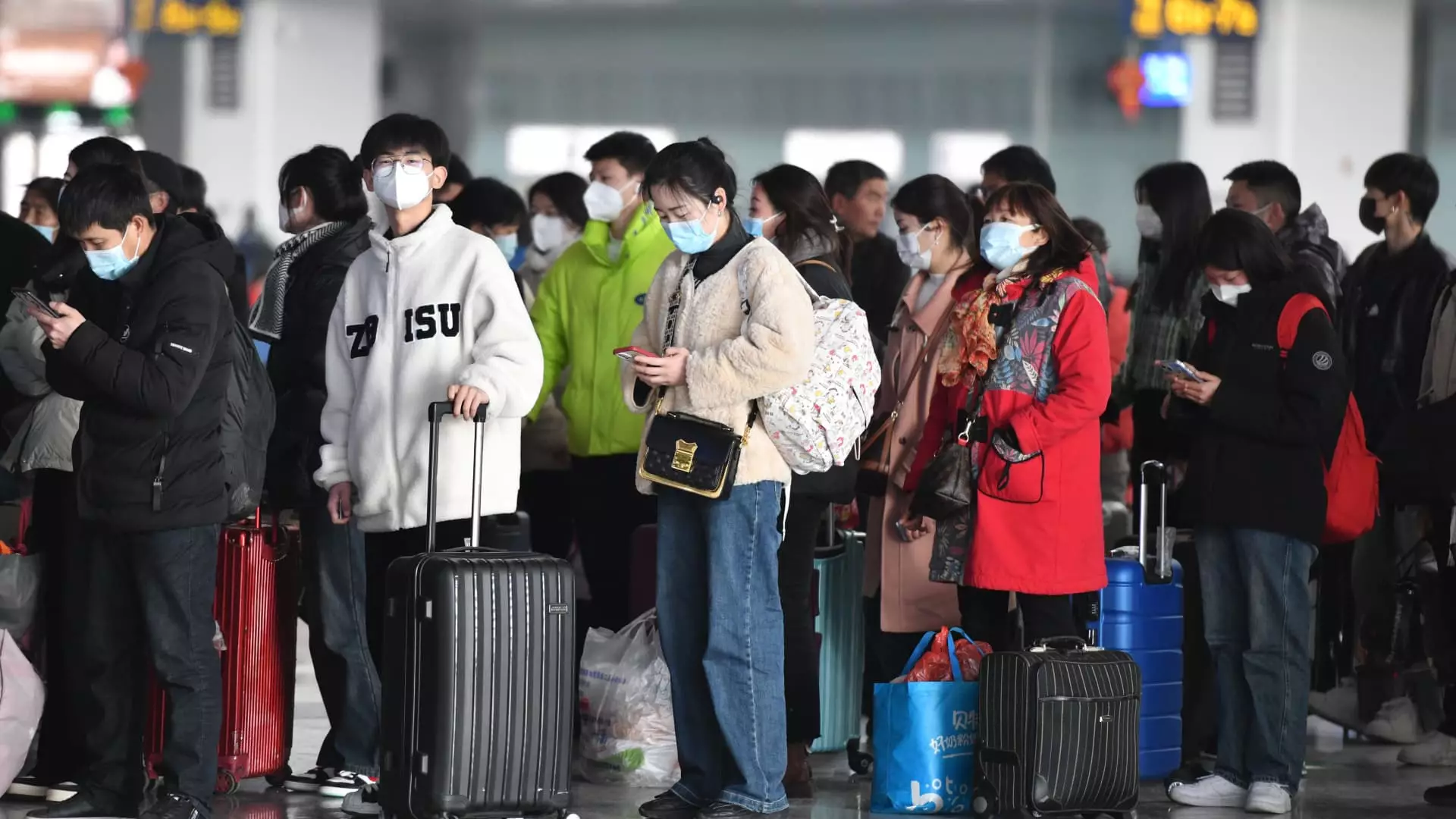As the Chinese economy struggles to recover, a crisis of consumer confidence has emerged among Chinese travelers. According to Marriott International’s president and CEO, Anthony Caputano, there has been a significant shift in booking behavior, with more consumers opting to book hotels as little as three days in advance. This trend represents a stark departure from the typical 20-day booking window observed in other parts of the world.
Economists at Oxford Economics have identified a growing preference among modern travelers for spontaneity in their travel plans. This shift towards last-minute trips is driven by a desire to take advantage of deals and discounts. However, this behavior also reflects increased uncertainty and caution among consumers when it comes to spending.
The shorter booking metrics pose a challenge for businesses in predicting and preparing for demand, particularly in the context of China’s slow economic recovery. Patrick Body of the Cheung Kong Graduate School of Business highlights the difficulty that companies face in adjusting to this new trend. The ongoing property crisis and high unemployment rates in China have led consumers to become more frugal across various sectors, including travel.
China has been historically characterized by short booking windows, with a report by the World Travel & Tourism Council affirming this trend. The uncertainty brought about by the pandemic has further exacerbated this behavior, with over 80% of hotel bookings on platforms like Trip.com being made within three days of check-in. The pricing pressure in the industry reflects the broader economic challenges faced by businesses in China.
While there has been an uptick in domestic travel during holidays like Labor Day, the average spending per traveler remains below pre-pandemic levels. The trend of opting for short-haul trips to smaller towns and counties is expected to continue, providing a much-needed boost to local economies. Economists anticipate a surge in travel demand during the upcoming Golden Week in October, surpassing 2019 levels.
Despite the potential for growth in travel activities, businesses like Trip.com are facing limited visibility due to the unpredictability of short booking windows. It remains unclear how the market will evolve in the second half of the year, with the company expecting booking activities to pick up post the National Day holiday.
The rise of last-minute trips among Chinese travelers reflects a broader shift in consumer preferences and economic uncertainty. Businesses must adapt to this evolving trend and find innovative ways to cater to the changing needs of their customers. By understanding and responding to these challenges, companies can navigate the current economic landscape and position themselves for success in the future.

